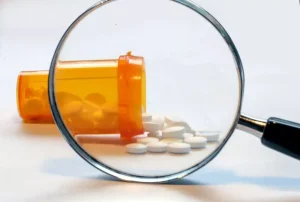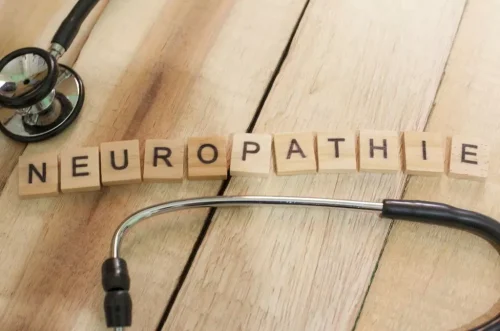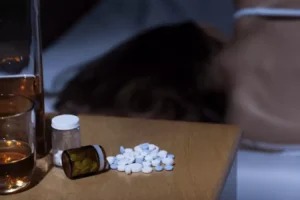
So, while the debate over what words and definitions to use for addiction goes on, we must be practical in our thinking about providing effective treatment for alcoholism and drug addiction. If we are to provide medication-assisted treatment and prescription digital therapeutics, we must do so within the context of clinical medicine. Therefore, we must also accept that alcoholism and various other types of drug addiction are medical disorders that benefit from medical treatment. Seeing addiction in this light will help change the addiction treatment industry to move in the direction of providing better medical care for patients. In this final stage of TTM, you have moved beyond the temptation to return to drinking. In 12-step groups, members believe that there is no cure for alcoholism, so that they may disagree with this sixth stage.
- These negative consequences can push the individual into the “contemplation” stage.
- It does not discriminate, and it doesn’t always reflect common stereotypes.
- Working with a specialized therapist in alcohol therapy can be especially helpful for identifying triggers, working through past traumas, and developing a plan for when triggers do arise.
- This inclusivity fosters a sense of empowerment, encouraging active participation in the recovery process.
Your Appetite May Change
People in the precontemplation stage typically do not consider their behavior to be a problem. This may be because they have not yet experienced any negative consequences of their behavior, or it may be a result of denial about the negativity or severity of the consequences they have experienced. In this stage, individuals habitually consume drugs, leading to increased tolerance and frequency. Their daily life is significantly impacted, affecting personal relationships and performance. Drug abuse alters brain function, releasing dopamine and causing pleasurable feelings.
- Establishing rapport between client and practitioner becomes pivotal, with identified short-term and long-term goals pursued actively through client motivation.
- Quitting drinking can have many important benefits for your physical and mental health, but there are many other types of benefits you may experience as well.
- It’s unlikely that a person in this stage would even be interested in information about alcoholism.
- Nevertheless, many treatment programs, including Alcoholics Anonymous, require a commitment to complete abstinence as a condition of admission.
Stage 3: Rehabilitation
The best way to handle a relapse is to take quick action to seek help, whether it’s intensifying support from family, friends, and peers or entering a treatment program. One advantage of mutual support groups is that there is likely someone to call on in such an emergency who has experienced a relapse and knows exactly how to help. Mindfulness training, a common component of cognitive behavioral therapy, can help people ride out their cravings without acting on them. Sustaining behavior change until new patterns become ingrained is difficult under the best of circumstances. The shifts in thinking and behavior are critical because they lay the groundwork for changes in brain circuity that gradually help restore self-control and restore the capacity to respond to normal rewards.
You May Feel More Productive
If you are familiar with the 12 steps of Alcoholics Anonymous, you may think of this as being the first step. However, you may choose a different recovery path from the 12 steps because you decide not to consider yourself to be powerless as the first step of AA states. This is usually when people start to feel their stages of alcoholic recovery best after giving up alcohol. By this point, most physical withdrawal symptoms should have subsided and you should start to feel less anxious and more positive. While recovery is a unique and personal journey that doesn’t always follow a linear path, there are some common stages in the addiction recovery timeline.

Alcohol Use Disorder
- This post covers the range of problematic alcohol use from pre-addiction to AUD.
- These may include therapy, support groups, or medical interventions for conditions like alcohol use disorder.
- However, you may choose a different recovery path from the 12 steps because you decide not to consider yourself to be powerless as the first step of AA states.
The initial experimentation stage is the first stage of addiction and drug exploration for individuals. It is characterized by a curiosity-driven exploration of substances to understand their effects. During this stage, people may try different addictive drugs in various settings to gauge their experiences and potential risks. When you reach this second stage, according to the transtheoretical model, you are getting ready to make a significant change in your life.
During the precontemplation stage, a person is feeling the effects of their addiction but is not interested in changing their habits. They will likely be defensive about their alcohol use and may even deny that it’s beyond their control. It sometimes takes a big event for someone to understand that they have an alcohol use disorder, such as a legal issue or an intervention. After someone realizes they may have an issue with alcohol use, they can move onto the second stage. Just as the 12 steps outline the path to recovery for individuals struggling with addiction, there are also 12 Traditions that are the spiritual principles behind the 12 steps.
Is addiction a disease?
“Evaluation of the patient for co-existing medical and psychiatric diseases is an important part of the assessment of patients with AUDs, but too often ignored or complicated by detoxification,” said Rummans. For example, AUD patients with major depression have significantly more relapses. Following dependency is addiction, where stopping becomes challenging https://ecosoberhouse.com/ due to cravings and withdrawal symptoms. Lastly, there’s recovery, where the person seeks help to overcome addiction and retake control of their life. Each stage has challenges, but early recognition can help get timely support and treatment. There has been debate and discussion for decades about addiction being a disease or not being a disease.
Month 1: Why “The First 30 Days” Can Be Challenging

Leave a Reply